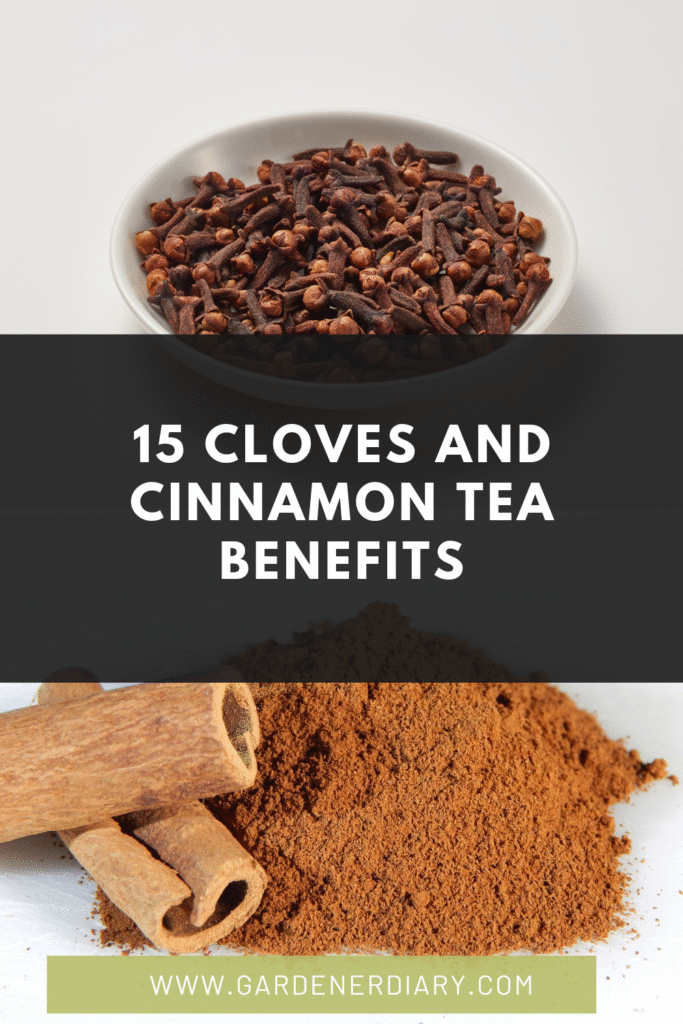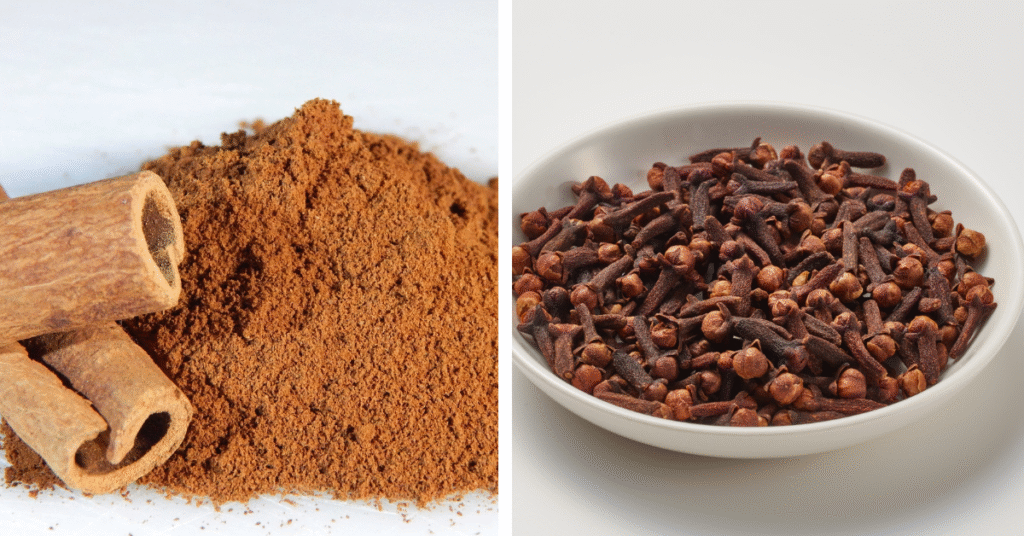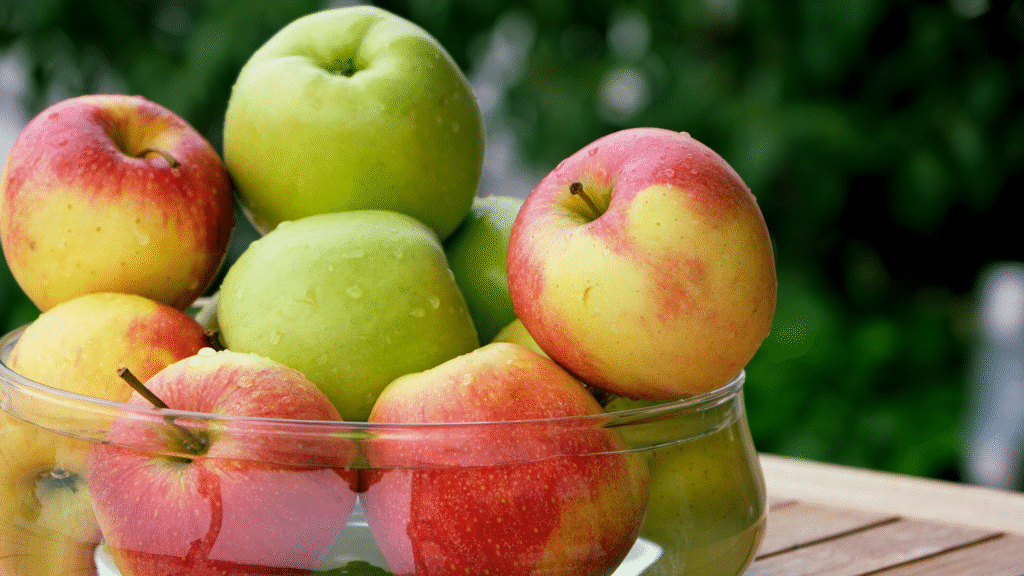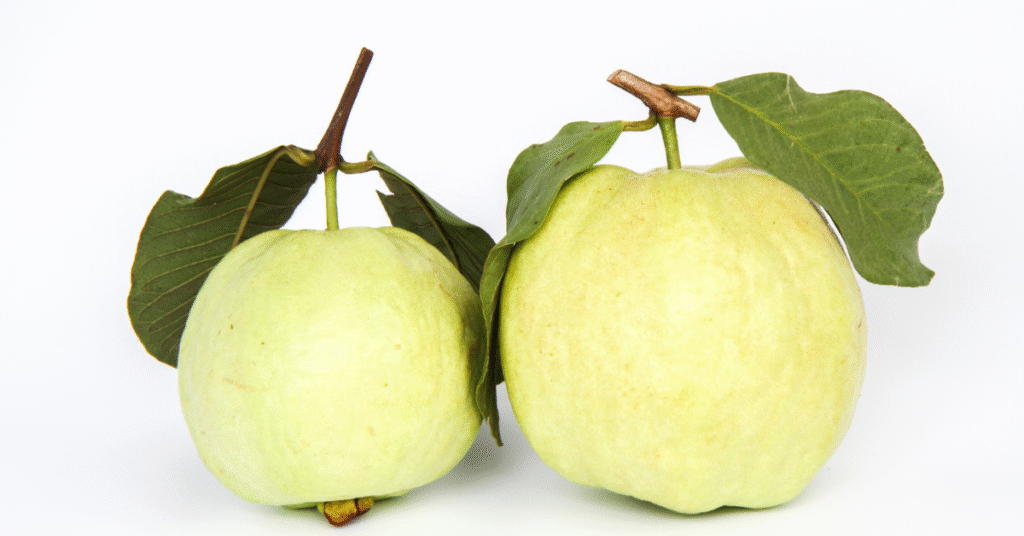Cloves and Cinnamon Tea Benefits: Unlocking a Potent Brew for Your Health
In the rich tapestry of global spices, cloves and cinnamon stand out not only for their distinctive aromas and flavors but also for their profound medicinal histories. Both have been treasured for centuries in traditional healing systems, from Ayurveda to Chinese medicine, for their powerful therapeutic properties. While cinnamon brings a warm, sweet note, cloves offer a pungent, aromatic depth, and when combined to create a soothing cloves and cinnamon tea, their individual strengths synergize, offering a potent brew that can significantly contribute to your overall well-being.
This comprehensive guide will explore 15 remarkable benefits of incorporating cloves and cinnamon tea into your daily routine, delving into the science behind their combined power and providing practical tips for preparing this healthful infusion.
The Power Duo: Cloves and Cinnamon’s Nutritional Profile
Both cloves (the dried flower buds of the *Syzygium aromaticum* tree) and cinnamon (from the inner bark of *Cinnamomum* trees) are packed with bioactive compounds.
- Cloves: Are exceptionally rich in eugenol, a powerful antioxidant and anti-inflammatory compound. They also contain manganese, vitamin K, and fiber. For a deeper dive into the general medicinal properties of cloves, you can refer to research like this PMC article on their therapeutic potential.
- Cinnamon: Primarily known for cinnamaldehyde, which gives it its distinct flavor and many medicinal properties. It’s also a source of powerful antioxidants (polyphenols), manganese, and fiber. For a more detailed look at its individual benefits, explore our guide on cinnamon tea benefits.
When brewed together, these compounds are released into the tea, offering a concentrated dose of their combined therapeutic potential. The nutritional composition and antimicrobial properties of both spices have been extensively studied, as highlighted in comparative research, including findings on their extracts from regions like Ghana, available on ResearchGate.
15 Remarkable Benefits of Cloves and Cinnamon Tea
1. Potent Antioxidant Powerhouse
Both cloves and cinnamon are among the spices with the highest antioxidant content. Cloves are particularly rich in eugenol, while cinnamon boasts a high concentration of polyphenols. Together, they form a formidable defense against oxidative stress, protecting your cells from damage caused by free radicals. This can help reduce the risk of chronic diseases and support overall cellular health. The antioxidant effects of cinnamon are well-documented in various studies, including this comprehensive review on its potential health benefits.
2. Strong Anti-inflammatory Effects
Chronic inflammation is a root cause of many chronic diseases. The active compounds in both cloves (eugenol) and cinnamon (cinnamaldehyde) possess significant anti-inflammatory properties. Regularly sipping cloves and cinnamon tea can help reduce systemic inflammation throughout the body, potentially alleviating pain and discomfort associated with inflammatory conditions. Research continues to explore the profound anti-inflammatory capabilities of these spices, as seen in publications like those in Sage Journals.
3. May Help Regulate Blood Sugar Levels
Cinnamon is renowned for its ability to improve insulin sensitivity and lower blood glucose levels, particularly after meals. Cloves also show promise in this area, with some studies suggesting they can help improve glucose metabolism. The combination in tea makes it a powerful natural aid for individuals looking to manage their blood sugar.
4. Supports Heart Health (Cholesterol & Triglycerides)
This aromatic duo can contribute significantly to cardiovascular well-being. Cinnamon has been shown to reduce total cholesterol, LDL (“bad”) cholesterol, and triglyceride levels, while cloves also exhibit hypolipidemic effects. Together, they can help maintain healthy lipid profiles, reducing risk factors for heart disease.
5. Aids Digestion & Reduces Bloating
Both spices have traditional uses as digestive aids. Cloves are known for their carminative properties, helping to alleviate gas and bloating, and can soothe an upset stomach. Cinnamon also improves overall digestive function. The tea can act as a natural stimulant for digestive enzymes, promoting smoother digestion and reducing discomfort after meals.
6. Powerful Antimicrobial Properties (Broad Spectrum)
Both cloves and cinnamon possess strong antimicrobial properties, effective against various bacteria, fungi, and even some viruses. This makes the tea a natural immune booster, helping your body fight off common infections. Research has demonstrated the combined antimicrobial effect of cinnamon and clove, for instance, against *Staphylococcus aureus* in food products, as detailed on ResearchGate. Further studies confirm their efficacy against common foodborne pathogens like *Escherichia fergusonii* and *Salmonella typhimurium*, as found in Fortune Journals. This aligns with the broader understanding of herbal remedies for various conditions, similar to the discussions on conditions aloe vera may help manage.
7. May Alleviate Joint Pain & Arthritis Symptoms
Given their significant anti-inflammatory properties, cloves and cinnamon tea may offer relief for individuals suffering from joint pain, swelling, and stiffness associated with conditions like arthritis. Eugenol in cloves acts as a natural analgesic, further contributing to pain reduction.
8. Boosts Immune System Function
The combined antioxidant and antimicrobial effects, along with the presence of vitamins and minerals, contribute to a stronger immune system. This tea can help fortify your body’s natural defenses, making it more resilient against pathogens and supporting overall immunity.
9. May Improve Respiratory Health & Soothe Coughs
Traditionally, both spices have been used to alleviate respiratory issues. Cloves are known for their expectorant properties, helping to clear congestion and soothe coughs. Cinnamon’s warming effect provides comfort during colds and flu. The tea can help ease symptoms of respiratory discomfort and promote clearer breathing.
10. Promotes Oral Health & Freshens Breath
Cloves are widely recognized in dentistry for their numbing and antiseptic properties, often used for toothaches. Cinnamon’s cinnamaldehyde is a potent antimicrobial against bacteria causing bad breath and cavities. The tea can combat oral bacteria, reduce gum inflammation, and leave your mouth feeling fresh.
11. May Support Brain Health & Cognitive Function
Emerging research suggests that compounds in both cloves and cinnamon may have neuroprotective effects. They can help reduce inflammation and oxidative stress in the brain, potentially improving cognitive function, memory, and offering protection against neurodegenerative diseases.
12. May Aid in Weight Management
While not a magic solution, the tea’s ability to regulate blood sugar can help curb cravings and reduce fat storage. Improved metabolism from cinnamon and the digestive support from both ingredients can contribute to a holistic approach to weight management.
13. May Alleviate Nausea & Morning Sickness
The warm, soothing properties of cloves and cinnamon tea can help calm an upset stomach and reduce feelings of nausea, whether from motion sickness or general digestive upset. While often used for morning sickness, pregnant women should consult a doctor before consuming.
14. May Support Bone Health (Manganese Content)
Cinnamon is a good source of manganese, a trace mineral essential for bone formation and metabolism. Cloves also contribute to mineral intake. While not a primary source, regular consumption of this tea can contribute to your daily intake of this important mineral, supporting bone density and strength.
15. May Help Reduce Menstrual Pain
Both cloves and cinnamon have traditional uses in alleviating menstrual discomfort. Their anti-inflammatory and antispasmodic properties can help reduce the severity of menstrual cramps and other associated symptoms. This makes the tea a comforting natural remedy for women during their cycle. This is a general wellness benefit, similar to how broad nutritional choices like those found in health benefits of guava can support the body.
How to Make Cloves and Cinnamon Tea
Preparing this beneficial tea is simple and can be easily incorporated into your daily routine.
- Ingredients:
- 3-5 whole cloves
- 1 cinnamon stick (preferably Ceylon cinnamon) or ½ – 1 teaspoon ground Ceylon cinnamon
- 2 cups (480ml) water
- Optional: Honey, lemon slice, or a small piece of ginger for added flavor and benefits.
- Instructions:
- Bring water to a boil in a small saucepan.
- Add whole cloves and cinnamon stick (if using) to the boiling water. If using ground cinnamon, add it after the water comes to a boil.
- Reduce heat to low, cover, and simmer for 10-15 minutes. Simmering allows the beneficial compounds to be properly extracted.
- Remove from heat and let it steep for another 5 minutes.
- Strain the tea into a mug to remove the spices/sediment.
- Add honey or lemon to taste, if desired.
- Tip: For a stronger brew, you can gently crush the cloves and break the cinnamon stick into smaller pieces before simmering. For a similar synergistic blend, you might also enjoy exploring the benefits of bay leaf and cinnamon tea.
Important Considerations & Precautions
While cloves and cinnamon tea offers many benefits, it’s crucial to be aware of potential considerations for safe consumption.
- Type of Cinnamon:
- Cassia Cinnamon: The most common type, contains coumarin, which can be harmful to the liver in large doses.
- Ceylon Cinnamon (“True Cinnamon”): Contains very little coumarin and is generally considered safer for regular, long-term consumption. Always opt for Ceylon cinnamon when consuming regularly.
- Moderation is Key: Even with Ceylon cinnamon and cloves, moderation is advisable. Excessive consumption of any herb or spice can lead to unforeseen effects.
- Blood Sugar Medication: If you are on medication for diabetes or blood sugar control, consult your doctor before regularly consuming this tea, as it can lower blood sugar and potentially lead to hypoglycemia.
- Blood Thinners: Both cloves (due to eugenol) and cinnamon may have blood-thinning properties. If you are on anticoagulant medications (e.g., warfarin), consult your doctor before consuming this tea regularly.
- Pregnancy & Breastfeeding: Pregnant or breastfeeding women should consult their doctor before using this tea in medicinal quantities.
- Allergies: While rare, some individuals may be allergic to cloves or cinnamon, experiencing skin irritation or digestive upset.
- Surgery: Due to potential effects on blood sugar and blood clotting, it’s advisable to stop consumption at least two weeks before a scheduled surgery.
Conclusion: A Simple Brew with Profound Benefits
The combination of cloves and cinnamon in a tea creates a delightful and potent brew that offers a wide array of health benefits. From its remarkable antioxidant and anti-inflammatory properties to its potential in supporting blood sugar regulation, heart health, digestion, and immunity, this ancient spice duo continues to impress with its therapeutic versatility.
Incorporating a warm cup of cloves and cinnamon tea into your daily routine is a simple, delicious, and effective way to harness the power of these incredible spices. Remember to choose Ceylon cinnamon for regular consumption and always consult with a healthcare professional if you have underlying health conditions or are taking medications. Sip your way to better health and enjoy the aromatic journey!



